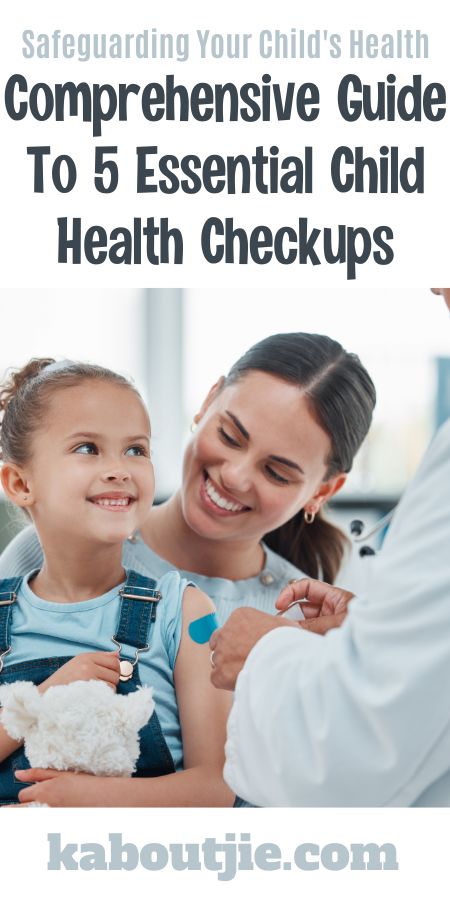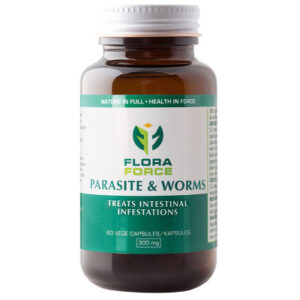As a caring parent, ensuring the well-being of your children is your top priority. Regular health checkups, including visits to the dentist and vaccinations, are crucial steps in keeping your little ones healthy and happy. In this comprehensive guide, we’ll explore the significance of health assessments for kids and cover key aspects such as vaccinations, dental checkups, and deworming to help you navigate their health journey with confidence.
***Disclosure -The links in this post may contain affiliate links and I may receive a small commission if you make a purchase after clicking on a link.***

The Significance Of Child Health Checkups
Regular health checkups are the cornerstone of proactive healthcare for children. These appointments offer a holistic view of your child’s physical, mental, and emotional development, enabling healthcare professionals to address any concerns promptly. Let’s delve into why these checkups are vital:
- Early Detection And Prevention: Regular checkups help identify potential health issues early, allowing for timely intervention and prevention of more serious conditions down the road.
- Growth Monitoring: Healthcare providers measure your child’s growth parameters, such as height and weight, to ensure they are developing at a healthy rate. Any deviations can be addressed promptly.
- Holistic Well-being: Checkups provide a platform to discuss your child’s overall well-being, including sleep patterns, dietary habits, and emotional health. This comprehensive approach ensures your child’s all-around health.
Newborn Screening Tests: A Vital Start for a Healthy Life
Welcoming a newborn into the world is a joyous occasion, filled with excitement and new beginnings. Amid the celebration, there’s an essential step that often goes unnoticed but holds significant importance: newborn screening tests. These tests are a proactive measure that can make a remarkable difference in your child’s life. In this blog post, we’ll explore the significance of newborn screening tests, what they entail, and why they are an integral part of ensuring a healthy start for your little one.
The Purpose of Newborn Screening Tests
Newborn screening tests, often referred to as “heel prick tests,” are a series of simple blood tests conducted within the first days of a baby’s life. The primary objective is to identify potential health conditions that might not be evident at birth. Early detection and intervention can prevent long-term health issues, ensuring that your baby receives the necessary care to thrive.

Conditions Screened Through Newborn Screening Tests
Newborn screening tests vary from one region to another, but they commonly screen for a range of genetic, metabolic, and congenital conditions. These conditions include, but are not limited to:
- Phenylketonuria (PKU): A genetic disorder that affects the breakdown of an amino acid called phenylalanine, which can lead to intellectual disabilities if not managed.
- Hypothyroidism: An underactive thyroid gland that, if left untreated, can cause developmental delays and other health problems.
- Sickle Cell Disease: A genetic disorder affecting red blood cells that can lead to anaemia, pain, and organ damage.
- Cystic Fibrosis: A hereditary disorder affecting the lungs and digestive system.
- Galactosemia: An inability to process galactose, a sugar found in milk, which can lead to serious health problems if not managed.
- Biotinidase Deficiency: A disorder that affects the breakdown of biotin, a B-vitamin essential for metabolism.
The Process of Newborn Screening
Newborn screening tests are simple and relatively painless. They usually involve a small blood sample taken from the baby’s heel. This sample is then sent to a laboratory for analysis. The results are typically communicated to the parents or guardians, and if a potential issue is detected, further testing and medical intervention can be initiated.
The Impact Of Early Detection
Early detection of health conditions through newborn screening tests can lead to timely intervention, which can make a world of difference. With appropriate medical care and management, many of the conditions identified can be treated effectively, minimising the potential for developmental delays, disabilities, or life-threatening complications.
To ensure that your little one is growing and developing in a healthy and optimal manner, regular visits to a baby clinic are essential. In South Africa, these clinics play a pivotal role in monitoring your baby’s progress and offering guidance to support their well-being.
Baby Clinic Assessments – Tracking Baby Growth And Development
Baby clinics are designed to provide comprehensive healthcare support for your infant’s growth and development. These assessments serve multiple purposes:
- Monitoring Growth: Regular measurements of your baby’s weight, length, and head circumference help track their growth trajectory and ensure they are hitting important milestones.
- Early Detection: Baby clinic assessments facilitate the early identification of any potential health concerns or developmental delays. Timely intervention can prevent issues from escalating.
- Parental Guidance: The clinic offers a platform for parents to receive guidance on various aspects of infant care, including feeding, sleep patterns, hygiene, and early childhood development.
When To Take Your Baby To The Clinic
Baby clinic visits are typically scheduled at specific intervals during the first year of your baby’s life:
- Birth: Your baby will have their first clinic assessment shortly after birth, usually within the first week.
- 2 Weeks: The second visit occurs around the second week of life, focusing on feeding, weight gain, and general well-being.
- 6 Weeks: At the 6-week mark, your baby will have their next assessment to track growth and receive vaccinations.
- 10 Weeks: Another assessment takes place around the 10-week mark, covering milestones and developmental progress.
- 14 Weeks: This visit includes further growth measurements, developmental evaluations, and vaccinations.
- 6 Months: At the 6-month mark, your baby will have an assessment focusing on developmental milestones, solid food introduction, and vaccinations.

What Happens at Each Baby Clinic Visit
During each baby clinic assessment, you can expect a series of comprehensive evaluations:
- Physical Measurements: Your baby’s weight, length, and head circumference will be measured to track growth.
- Developmental Milestones: The healthcare provider will assess your baby’s motor skills, sensory responses, and other developmental milestones.
- Feeding And Nutrition: Discussions about breastfeeding, formula feeding, and introducing solid foods will provide guidance on nurturing a healthy diet.
- Vaccinations: Vaccinations are a crucial part of baby clinic visits to protect your baby from preventable diseases.
- Parental Concerns: You can discuss any concerns you have about your baby’s health, development, feeding habits, or sleep patterns with the healthcare provider.
Vaccinations: Shielding Your Child’s Future
Vaccinations are a cornerstone of paediatric healthcare, safeguarding children from a range of preventable diseases. Understanding the significance of vaccinations can empower you to make informed decisions.
The South African Immunisation Schedule: A Snapshot
The South African government has designed a robust immunisation schedule that aims to shield children from preventable diseases. This schedule aligns with the World Health Organization’s recommendations and is a key component of public health efforts. Below is an outline of the key vaccinations and their timing:
Birth:
- BCG Vaccine: This vaccine guards against tuberculosis (TB) and is administered at birth or as soon as possible after birth.
6 Weeks:
- DTP-Hib-HepB Vaccine: This combination vaccine protects against diphtheria, tetanus, pertussis (whooping cough), haemophilus influenza type b, and hepatitis B.
- Polio Vaccine: Protects against polio, a highly contagious viral disease.
10 Weeks:
- DTP-Hib-HepB Vaccine
- Polio Vaccine
14 Weeks:
- DTP-Hib-HepB Vaccine
- Polio Vaccine
- Pneumococcal Vaccine: Guards against pneumococcal infections, including pneumonia and meningitis.
9 Months:
- Measles, Mumps, and Rubella (MMR) Vaccine: This combination vaccine provides immunity against measles, mumps, and rubella.
- Polio Vaccine
12 Months:
- Hepatitis A Vaccine: Protects against hepatitis A, a viral infection affecting the liver.
18 Months:
- DTP-IPV-Hib-HepB Vaccine: A booster dose of the combination vaccine for diphtheria, tetanus, pertussis, haemophilus influenza type b, and hepatitis B.
6 Years:
- DTP-IPV Vaccine: A booster dose for diphtheria, tetanus, pertussis, and polio.
12 Years (Girls):
- Human Papillomavirus (HPV) Vaccine: Protects against HPV, a common virus that can lead to cervical cancer.
Note: The immunisation schedule may be subject to updates or modifications. Consult with your healthcare provider or visit the South African Department of Health’s official website for the latest information.

Ensuring Complete Protection
To ensure your child’s complete protection, it’s crucial to follow the immunisation schedule diligently. Remember these key points:
- Stay Informed: Keep yourself updated with any changes to the immunisation schedule or additional vaccines that may become available.
- Adhere To Timing: Timeliness is essential for maximum effectiveness. Make sure your child receives their vaccines on schedule.
- Communication: Maintain open communication with your healthcare provider. Discuss any concerns you have about vaccines, side effects, or your child’s health.
- Record Keeping: Maintain accurate records of your child’s vaccinations. This documentation can be essential for school enrolment and other activities.
Vaccinations are a cornerstone of preventive healthcare, offering invaluable protection against a range of serious diseases. By adhering to the South African immunisation schedule and staying informed about your child’s vaccination needs, you are taking a proactive step toward securing their health and well-being. Your commitment to your child’s health is an investment in their future, ensuring that they grow up healthy and resilient.
Dental Checkups: Nurturing Healthy Smiles
As parents, we strive to give our children the best start in life, and that includes ensuring their health and well-being. While regular medical checkups are a given, we sometimes underestimate the significance of dental checkups for our kids. Dental health is an integral part of their overall well-being
Why Dental Checkups Matter
- Early Detection Of Issues: Just like medical checkups, dental visits aid in early detection of dental problems. Catching issues like cavities or misaligned teeth early can prevent them from becoming more serious concerns.
- Preventive Care: Dental checkups are not only about addressing problems but also about preventing them. Dental professionals can provide guidance on proper oral hygiene, diet, and habits to maintain healthy teeth and gums.
- Establishing Good Habits: Regular dental visits help instil positive oral hygiene habits in your child. They learn the importance of brushing, flossing, and caring for their teeth from a young age.
- Boosting Confidence: A healthy smile contributes to your child’s self-esteem. Regular dental care ensures they have a bright, confident smile they can be proud of.
When To Start
The American Dental Association recommends that a child’s first dental visit should occur within six months after their first tooth emerges or before their first birthday. Starting early establishes a positive relationship between your child and their dentist and lays the foundation for a lifetime of good oral health.
Children should have dental checkups at least every six months, or as recommended by their dentist. Regular dental visits are essential to monitor oral health, catch any issues early, and ensure proper oral hygiene practices. Dental professionals can assess the development of your child’s teeth, identify any cavities or potential problems, provide guidance on proper brushing and flossing techniques, and address any concerns you may have about your child’s oral health. It’s important to establish a routine of regular dental checkups from a young age to promote good oral hygiene habits and maintain optimal oral health throughout childhood and beyond.
Deworming: A Lesser-Known Necessity
Deworming might not be a topic often discussed, but it’s an essential part of your child’s health regimen:
- Frequency: Deworming treatments are typically recommended every six months, but this can vary based on local prevalence and risk factors.
- Symptoms Of Infestation: Watch for signs like stomach pain, changes in appetite, and fatigue. Regular deworming can help prevent these issues.
- Hygiene And Prevention: Educate your child about the importance of handwashing and maintaining personal hygiene to prevent worm infestations.
Your dedication to your child’s well-being is evident in your commitment to their health checks. Regular visits to healthcare providers, dentists, and adherence to vaccination and deworming schedules collectively contribute to your child’s optimal growth and development. By staying informed, fostering good health habits, and nurturing a positive attitude toward healthcare, you’re laying the foundation for a lifetime of well-being. Remember, investing in your child’s health today ensures a healthier tomorrow.
 Kaboutjie SA Mommy Blogs by Lynne Huysamen
Kaboutjie SA Mommy Blogs by Lynne Huysamen





